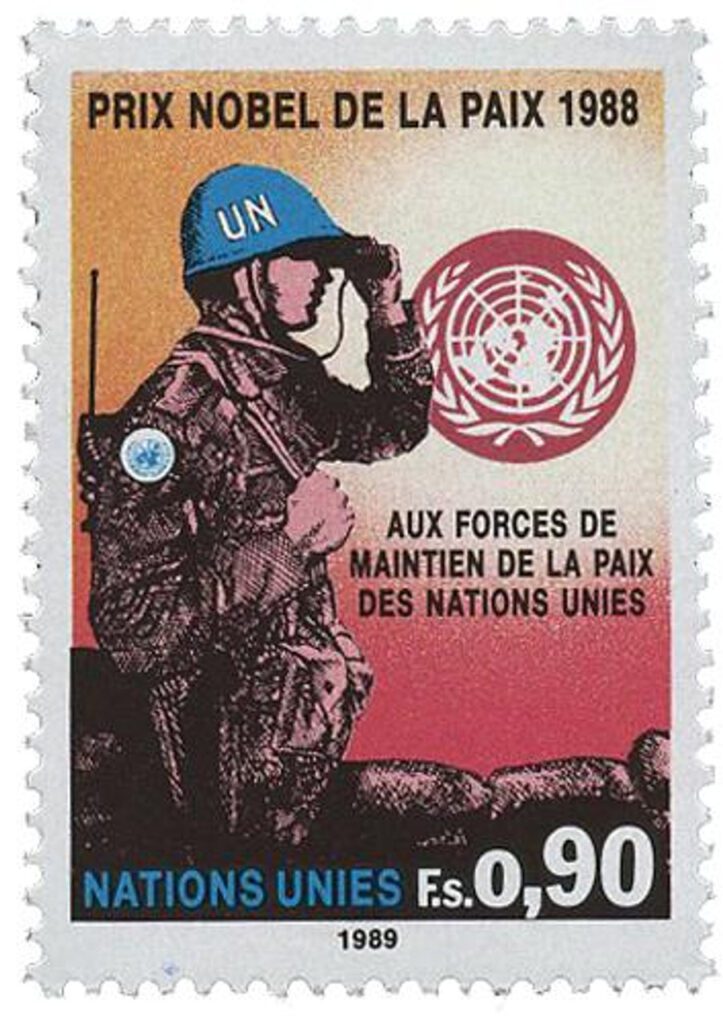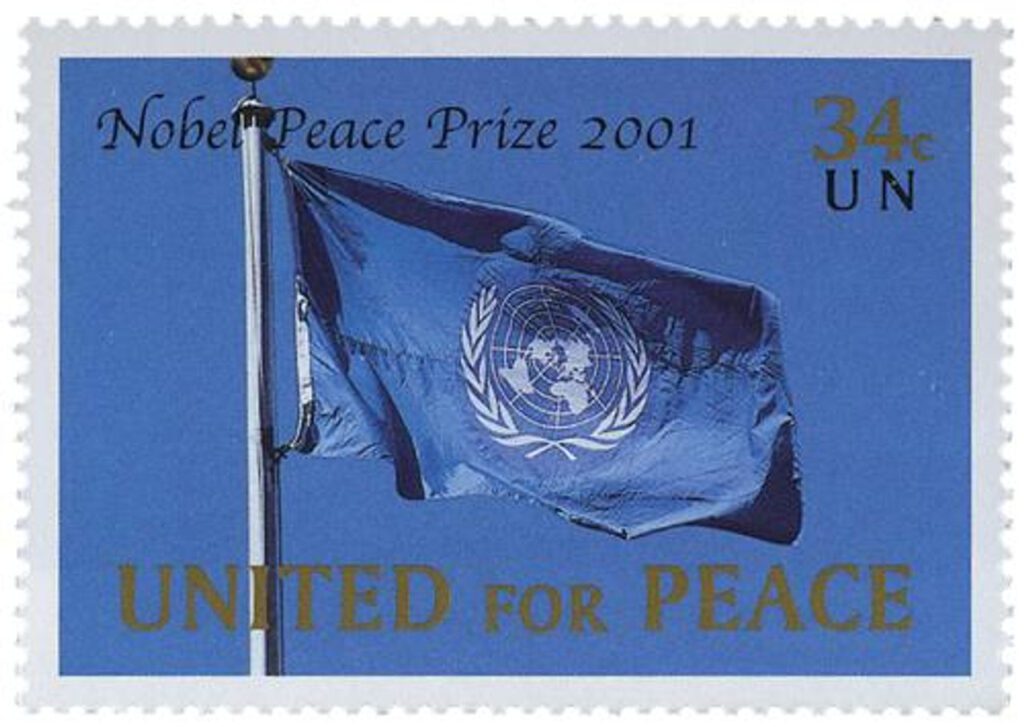As instructed by their benefactor, the first Nobel Prizes were awarded on December 10, 1901, on the fifth anniversary of Alfred Nobel’s death.
Alfred Nobel was a Swedish industrialist whose work stabilizing nitroglycerin led to patents for dynamite, blasting gelatin, and ballistite (a smokeless powder propellant). He earned great wealth through the manufacture of explosives in Europe and the United States. Nobel left the vast majority of his fortune to establish the Nobel Prizes after his death on December 10, 1896.
The first Nobel Peace Prize was awarded to Jean-Henry Dunant as the founder of the Red Cross. Although living in a Swiss poorhouse at the time of his award, Dunant continued his nature of generosity by giving the prize money to charity. The Red Cross Organization has been awarded the Nobel Peace Prize three times – 1917, 1944, and 1963.
Following the death of his Secretary of State in July 1905, President Theodore Roosevelt took charge of the negotiations to end the Russo-Japanese War. He hosted diplomats from both nations at his home at Sagamore Hill in Oyster Bay, New York, as well as at the naval base in Portsmouth, Virginia, after which the eventual Treaty of Portsmouth was named.
The following year, Roosevelt was awarded the Nobel Peace Prize for his efforts in ending the Russo-Japanese War and overseeing the peace talks, making him the first American to receive the distinguished award. Roosevelt did not think it was right to travel and pick up his award while still in office, so he waited until after his term in 1910. He gladly accepted his medal, but did not want the prize money. He felt that he had only received the award because he was President, and wanted the money to benefit the nation. He initially planned to have the money placed in a trust for the industrial peace of the nation. By 1918, the trust was established, though the money had collected interest and totaled over $45,000. So Roosevelt made some 28 different donations to help war relief efforts, including to the Red Cross and Y.M.C.A.

As stated in Nobel’s will, five prize categories reward those people whose work benefits humanity. (An additional award for economics was funded by the Bank of Sweden in 1968.) And two separate groups select and award Nobel Prizes. Both award ceremonies are held on December 10 in Nobel’s honor. The King of Sweden presents awards for physics, chemistry, medicine, and literature in the Stockholm Concert Hall. The Chairman of the Norwegian Nobel Committee in Oslo bestows the Nobel Peace Prize with the King and Queen of Norway in attendance. As of 2012, each Laureate (Nobel Prize recipient) receives a medal, a diploma, and a monetary prize of eight million Kronor ($1.2 million U.S.). Up to three people may be awarded each prize. In that case, the prize money is divided between them. Formal banquets follow the award ceremonies in both countries, with the Royal Families and world dignitaries attending.

There have been 893 Nobel Laureates to date – 870 individuals and 23 organizations. Of this number, 821 were men and 49 were women. However, one of the women – Marie Curie – was one of only four people to receive two Nobel Prizes (1903-Physics and 1911-Chemistry).
The youngest recipient was 25-year-old Lawrence Bragg for physics in 1915. The oldest was 88-year-old Raymond Davis Jr., also for physics, in 2002.
Discover what else happened on This Day in History.




ONCE AGAIN, TODAY IN HISTORY OUT DID ITSELF!!!
I learn from reading stories behind stamps. They are interesting and thought provoking. The topics are very diverse. They make me question if I do own that stamp. The value of the stamp seems cheap for the content it reflects. I hope this day in history continues for ever, because the topics are endless.
I Second the motion, and agree on the comment entirely….good way to start a day positively….tk u for publishing… ray l….
I, too, wish to thank you for your research in providing an entertaining history lesson every day. I hope you never tire nor run out of great subjects to enlighten us with daily.
Jean Henry Dunant was certainly deserving and set a great example to others. I always associate Clara Barton with the Red Cross, and had not hear of Dunant. I am better informed thanks to your history Newsletter.
Informative indeed! The high values of former recipients is amazing. Who in this day would give up $1.2M for others—what values! And what President would wait until he was out of office before receiving the award–what leadership. Keep up the good work.
Thanks Mystic for another great look at World History. The 114th Anniversary of the Nobel Prizes. Outstanding! [SIDEBAR – the US stamp Scott shown 3504 is a joint issue with Sweden and the FDC showing both stamps is also noted above as Item #571167B. These stamps were engraved for both postal services by the Polish born engraver, Czeslaw Slania of the Danish Postal Service. His signature is on the FDC above. Slania engraved over 1000 stamps before his demise in 2005. There are many of us who collect the stamps, banknotes and ephemera of Slania and if you are interested in seeing more of his work, reading about him, or collecting more of his work, here is a good place to start: https://en.wikipedia.org/wiki/Czeslaw_Slania — this Wiki article gives a short history and many references and external links, including check lists for his work]. Many of his stamps and probably his banknotes are likely available from Mystic. ENOY!
Such an interesting article. These daily postings are always informative. Thank you, Jerry, for information on Czeslaw Slania. His work with postal engravings is wonderful. I have some of his stamps, and will continue collecting them.
At one time I revered the Nobel prizes. Today they are just another device by Communists, liberals and left-wingers to advance their agenda. I pay little attention to them.
Steve, I have little respect for two of the groups that you have mentioned and despise the other one. However, I have never noticed the association between the award and the aforementioned classifications. I have always revered the accomplishments that achieve this recognition but will now evaluate motivation now that it may be issue, and i’ll get back with you. In the meantime, big bang theory…….wow, among other things.
I am somewhat disappointed that Canada’s Lester Bowles Pearson was not mentioned in this articles as he is known as the “Father of the United Nations Forces and won the Nobel Peace Prize in 1957.
His intervention “peacefully” prevented a nuclear war. visit him at Nobelprize.org.